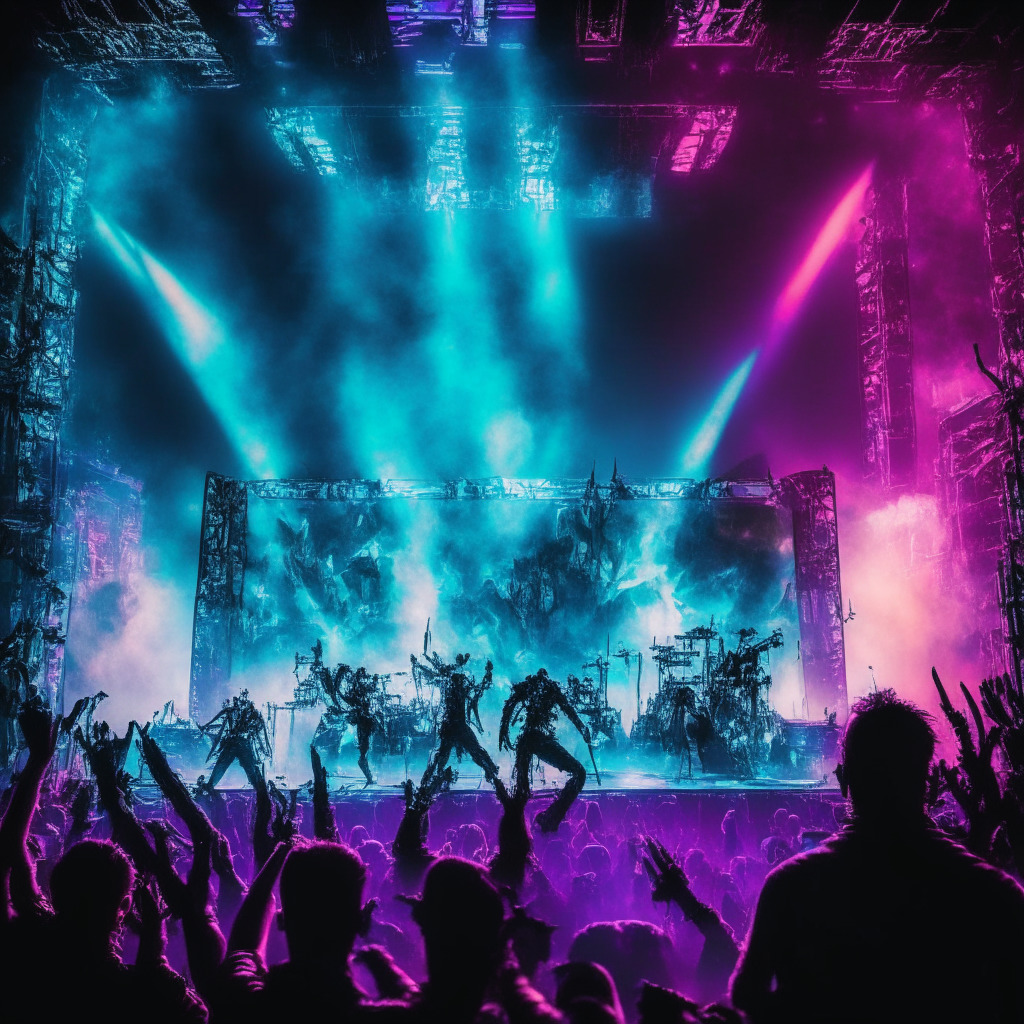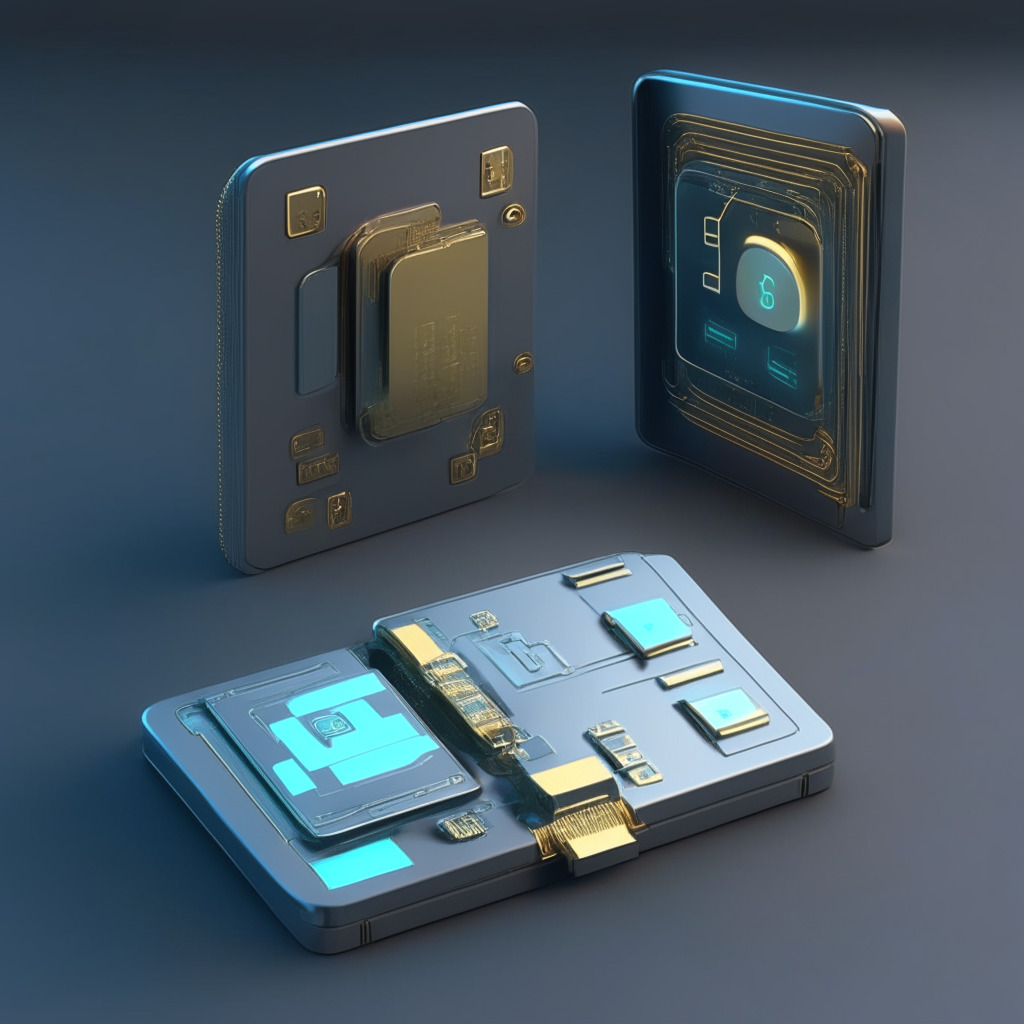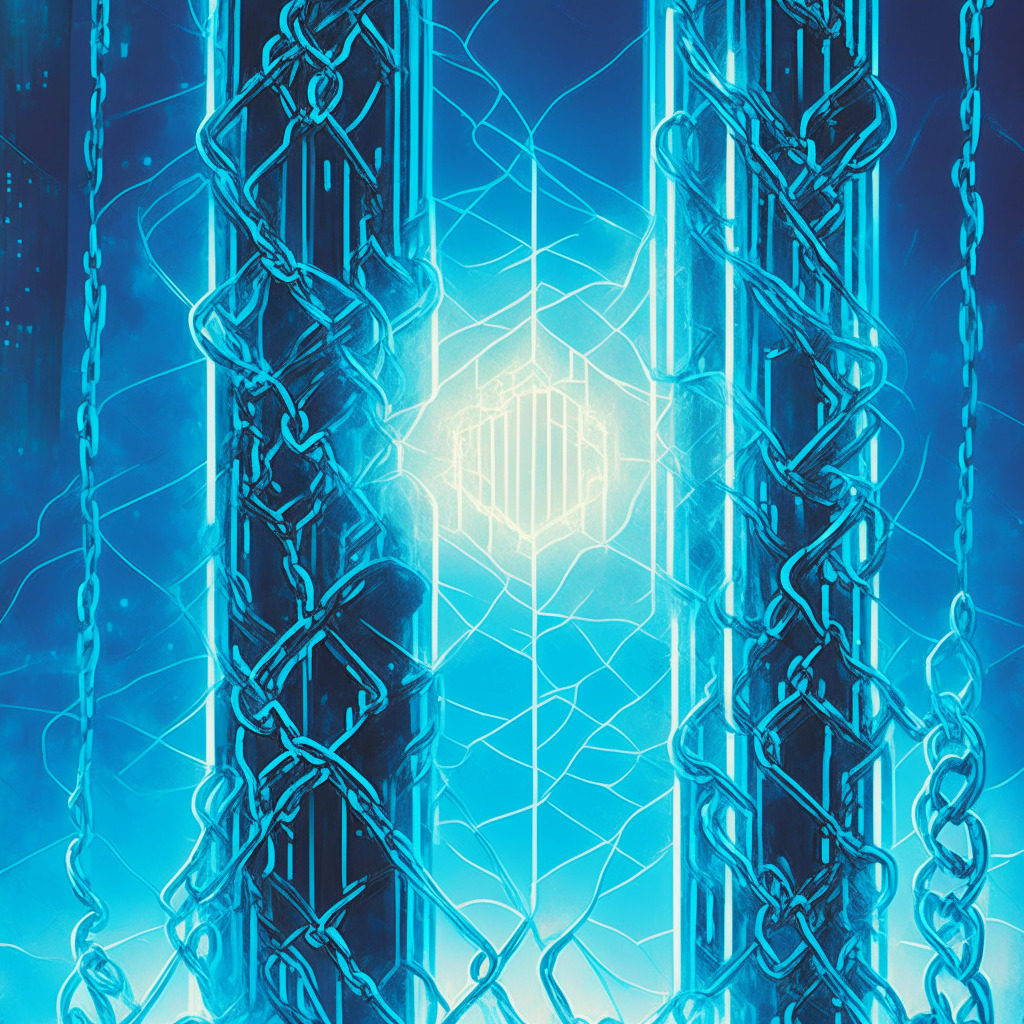The music industry has witnessed many groundbreaking shifts in recent times, with some artists revolutionizing the way they interact with their audiences. One such example is the famous band Avenged Sevenfold led by singer Matt Sanders, aka M. Shadows. As they prepare for their upcoming tour, the band is looking to incorporate Web3 technology, NFTs, and AI to redefine the fan experience and bring a new dimension to their concerts.
In an attempt to give its followers an enhanced and immersive experience, the band launched a Deathbats Club NFT collection in 2021. Not only were they early adopters of this up-and-coming technology, but their decision to launch a year ahead of their 2023 tour allowed ample time for their fanbase to become familiar with the Web3 system. With tokens in hand, Deathbat NFT holders will receive special perks, such as early access to tickets for shows on the next tour.
Talking to hosts Andrew Hayward and Stephen Graves, M. Shadows also discussed the integration of AI into their music and the idea of bringing Web3 into the gaming industry. While the benefits of AI in music creation and gaming are becoming increasingly evident, skeptics may question how this technology can effectively be integrated without compromising authenticity and artistic integrity. Moreover, can we truly differentiate between music created by artificial intelligence and that of human touch?
When it comes to the gaming world, the incorporation of Web3 has the potential to change the dynamics by introducing decentralized systems, user control over virtual assets, and financial empowerment through tokens and digital currencies. However, one cannot ignore possible downsides such as regulatory uncertainty, privacy concerns, and risks associated with online fraudulence.
While the concept of NFTs in the music industry illustrates a groundbreaking blend of technology and creativity, critics may argue that NFTs are merely a bubble waiting to burst due to their volatile valuations and questionable utility. On the flip side, proponents of NFTs argue that they represent a new age of digital creativity that empowers artists and fans alike, allowing them to exchange and monetize valuable digital content.
In conclusion, the exploration of groundbreaking ideas and technologies such as NFTs, AI, and Web3 in the music and gaming industries exemplifies both the potential and the risks involved in pushing the envelope. As the fascinating relationship between technology and our experiences continues to evolve, fans of Avenged Sevenfold and other forward-thinking musicians have much to look forward to. Only time will tell how successful these endeavors will be in shaping the future of entertainment and whether or not the potential pitfalls can be effectively mitigated.
Source: Decrypt




